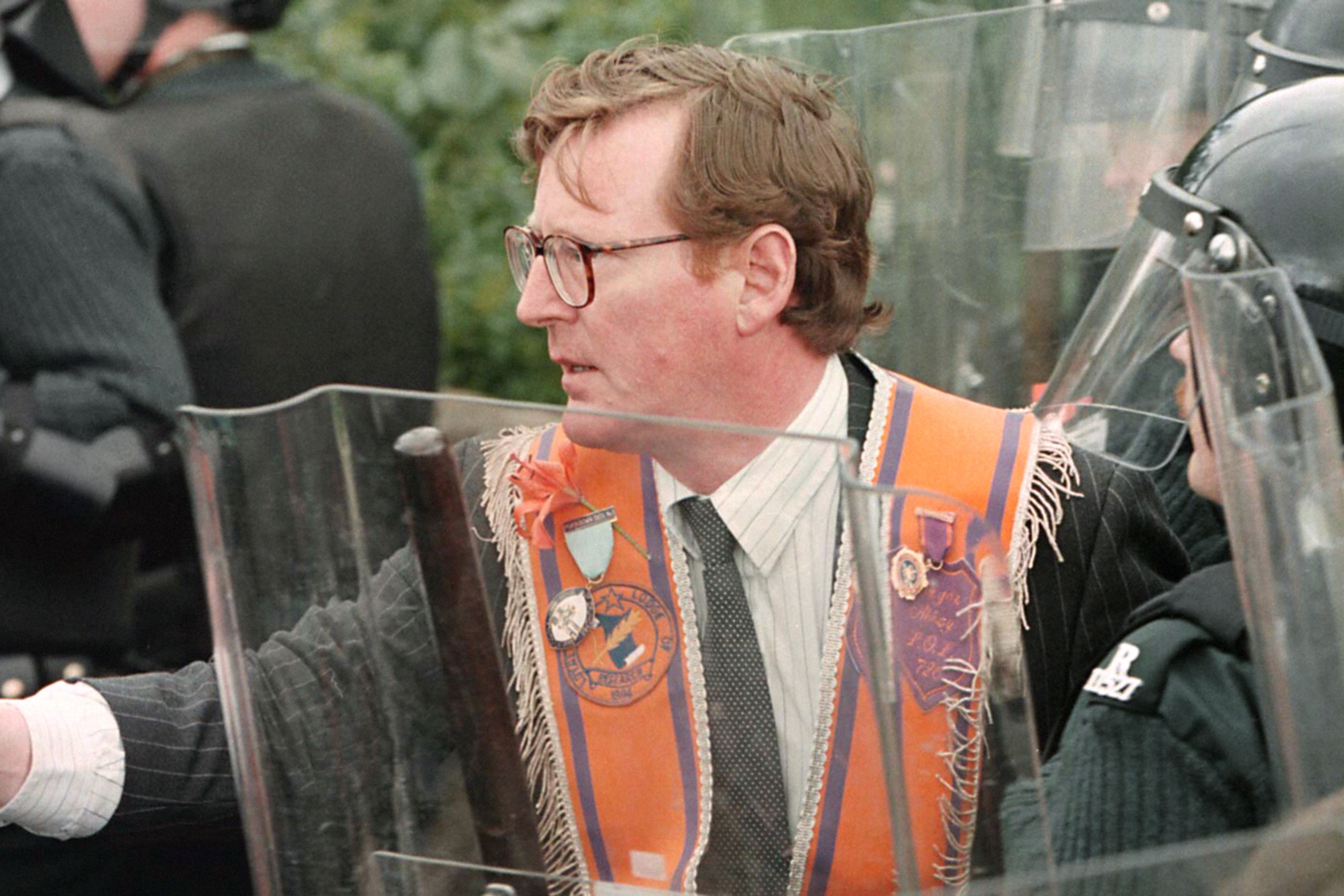Government wanted RUC to keep power over parades after Drumcree clashes
Declassified files reveal proposals to deal with the parading dispute.

Your support helps us to tell the story
From reproductive rights to climate change to Big Tech, The Independent is on the ground when the story is developing. Whether it's investigating the financials of Elon Musk's pro-Trump PAC or producing our latest documentary, 'The A Word', which shines a light on the American women fighting for reproductive rights, we know how important it is to parse out the facts from the messaging.
At such a critical moment in US history, we need reporters on the ground. Your donation allows us to keep sending journalists to speak to both sides of the story.
The Independent is trusted by Americans across the entire political spectrum. And unlike many other quality news outlets, we choose not to lock Americans out of our reporting and analysis with paywalls. We believe quality journalism should be available to everyone, paid for by those who can afford it.
Your support makes all the difference.The UK Government insisted that the RUC should retain the power to make decisions over contentious parades in the first year that violence erupted at Drumcree in Northern Ireland.
A series of declassified memos from Northern Ireland Office (NIO) officials in 1995 reveal a number of proposals were suggested to resolve marching disputes, including charging the Orange Order for the use of roads and policing.
Details are contained in documents being opened for public viewing under annual releases by the Public Record Office of Northern Ireland.
The files show that government officials said the advent of the peace process had led to more marching tensions, adding that Sinn Fein “spotted an opportunity to provoke clashes between the RUC and the nationalist community”.
In July 1995, nationalist protesters opposed the procession of an Orange parade along the Garvaghy Road in Portadown.
A stand-off saw clashes between loyalists and police and the blocking of roads in a number of locations across Northern Ireland.
A compromise was reached which saw Orangeman walk down the road. Upper Bann MP and future Ulster Unionist leader David Trimble and DUP leader Ian Paisley famously held each other’s arms aloft outside Carleton Street Orange Hall for the final leg of the parade.
But the violent scenes led to a series of memos within the Northern Ireland Office in the following days, entitled Policy Towards Public Marches.
On July 14, DJ Watkins from the Central Secretariat wrote: “I am sure that I will not be the only one to have been very disquieted by the recent events in Portadown and the Ormeau Road.
“I wonder if we ought to use the time between now and next marching season to have a thorough review of policy in the area?”
On July 17, JA Canavan from the Central Community Relations Unit responded: “One of the main problems with the current system, whereby the RUC makes operational decisions on the basis of public disorder, is that it actually encourages those who wish to stop a march to threaten disorder.
The Portadown situation was very unpleasant but there was an eventual agreement, which the dreadful Trimble did his best to obstruct and spoil
“The marchers then regard this as blackmail and the verbal escalation begins, building up tension in advance of the march.”
He made a number of policy suggestions for contentious marches, including the creation of a special commission to adjudicate on parades.
He added: “A further option would be to discourage parades by using market mechanisms, ie charging for the use of the road and policing costs, which would obviously be greater if the parade was going through an area where it was unwelcome.”
JM Steele, head of security at the NIO, wrote on July 18: “Last year the Orange parades passed off almost without incident.
“It could have been assumed that the peace might reduce the problems further.
“Not so, mainly because Sinn Fein spotted an opportunity to provoke clashes between the RUC and the nationalist community – an integral part of their current strategy.
“Given the Sinn Fein intervention (which was not evident in previous years), I think the RUC did remarkably well.
“The Portadown situation was very unpleasant but there was an eventual agreement, which the dreadful Trimble did his best to obstruct and spoil.”
The following month Northern Ireland secretary Patrick Mayhew wrote to his Labour counterpart Mo Mowlam to say that taking parading decisions out of the hands of the police risked politicising the situation.
He said: “This year’s difficulties, many of which were deliberately provoked to draw the RUC into confrontation, ought to be seen as the exception rather than the rule.
“It remains my view that, for the future, the issue should remain in the hands of police with decisions continuing to be made by operational commanders.
“Any other approach carries the danger of the issue of marches and their possible re-routing becoming even more politicised.”
Violent clashes continued at Drumcree in following years.
The Parades Commission was established to make determinations on contentious marches in 1997.